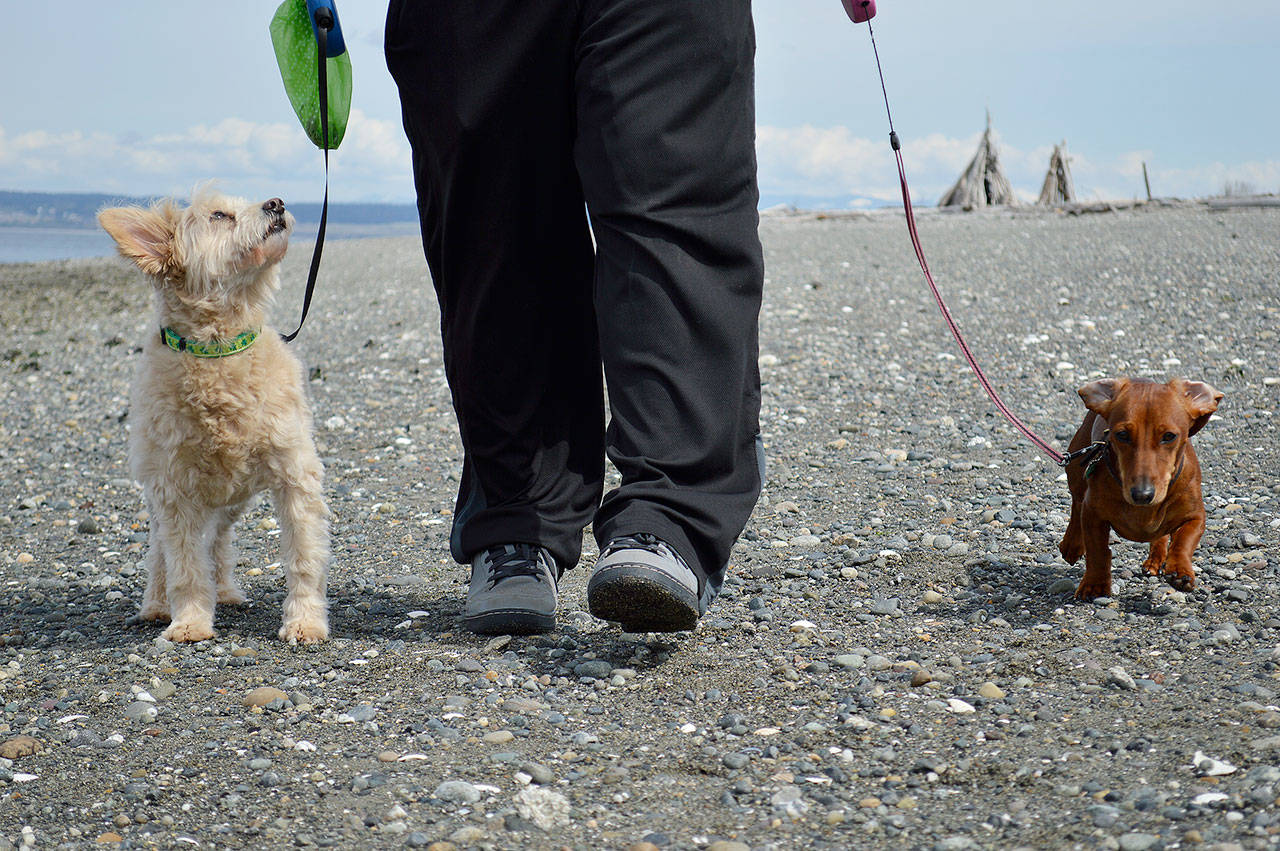Protecting water quality doesn’t always have to mean dramatic changes made only by large corporations or farming operations. Small everyday behavior changes by individuals can go a long way to ensuring the water in and around the island stays clean and safe for animals and humans.
“One of the biggest things that we talk about often is picking up your dogs’ waste and bagging it and throwing it in the garbage— not tossing it in the bushes or over the bluff,” said Jenny Schofield, county environmental health specialist.
While it’s true wildlife do their business outdoors all the time, Schoefield said it makes a big difference to remove dog poop because it has much higher concentrations of harmful bacteria. Stormwater can carry the bacteria, which could adversely affect wildlife and human populations within the area.
Dog waste isn’t the only culprit when it comes to water contamination. Failed septic systems can result in the spread of pathogens such as fecal coliform into nearby water, and 70 percent of all sewage systems on the island are septic. A functioning septic field needs to have proper vegetation to filter the sewage, according to Matt Colston, of the on-site septic division of county environmental health.
“If you don’t have good soil, your waste water probably isn’t going down, it’s going up and it’s probably flowing above the surface,” Colston said.
He said this flow can impact both ground and surface water quality. Conventional systems should be inspected every three years and non-conventional systems, meaning anything that isn’t a traditional gravity drain field, every year. Island County’s environmental health website has a list of septic maintenance providers.
He said the non-profit organization Craft3 offers low-interest loans for replacing failing septic systems to Island County residents who can’t afford it.
Pooping isn’t the only human activity negatively impacting water quality. Applying fertilizers at the wrong time or over fertilizing can hurt surface and groundwater. Schofield said while many people are starting to ready their gardens or yards for spring, it’s important not to fertilize or use pesticides right before it’s going to rain and to follow instructions carefully to ensure neither product is overused.
“It’s something to be diligent about if you’re going to use those on your property,” she said. “Because they’ll runoff and cause problems.”
Runoff from washing cars can also impact water quality, Schoefield said. Cleaning vehicles on an impervious surface, like a driveway, means the water will carry soaps, dyes and potentially toxic road grime into a storm drain. Schoefield said using an impervious surface like a lawn or dirt will allow the water to percolate and filter out many of the harmful substances.
“People have an assumption I think that our storm drains go into a treatment before it’s discharged into Puget Sound and I would say definitely more often than not that’s not the case,” said Lori Clark, natural resources manager. “It directly discharges into Puget Sound.”
Home and landowners can contact resources like the Whidbey Island Conservation District for advice on protecting water quality.
The district can help provide best practices for managing and filtering stormwater so contaminated stormwater doesn’t go straight to Puget Sound.
“The district can often answer individual questions by phone but staff may also provide site visits to property where owners need specific information,” said Karen Bishop, district manager.
• The conservation district can be contacted at 360-678-4708. Island County Master Gardeners can also offer advice on using native plants to manage water and provide buffers to streams. The free Master Gardener Hotline is 360-639-6058.



